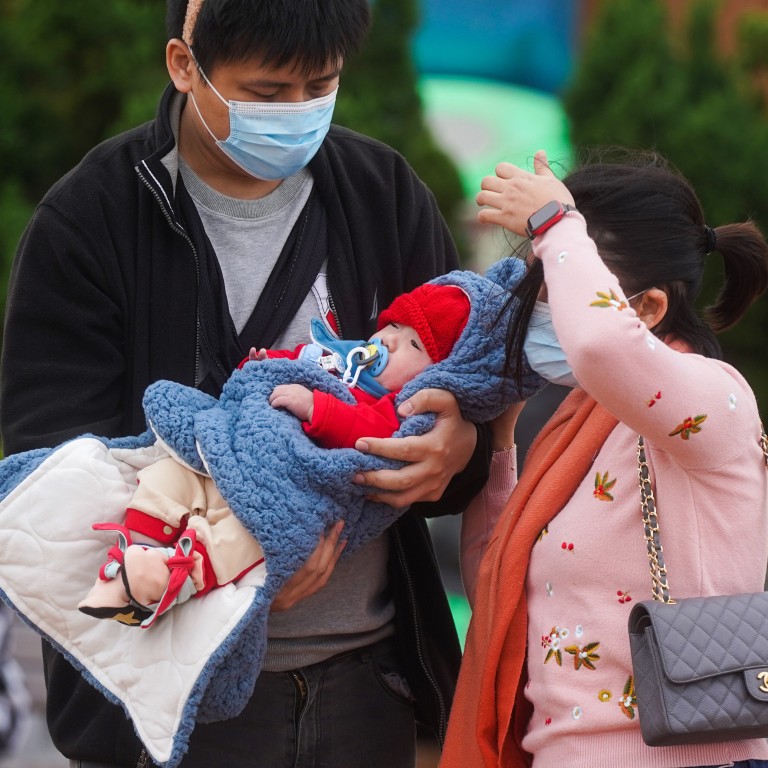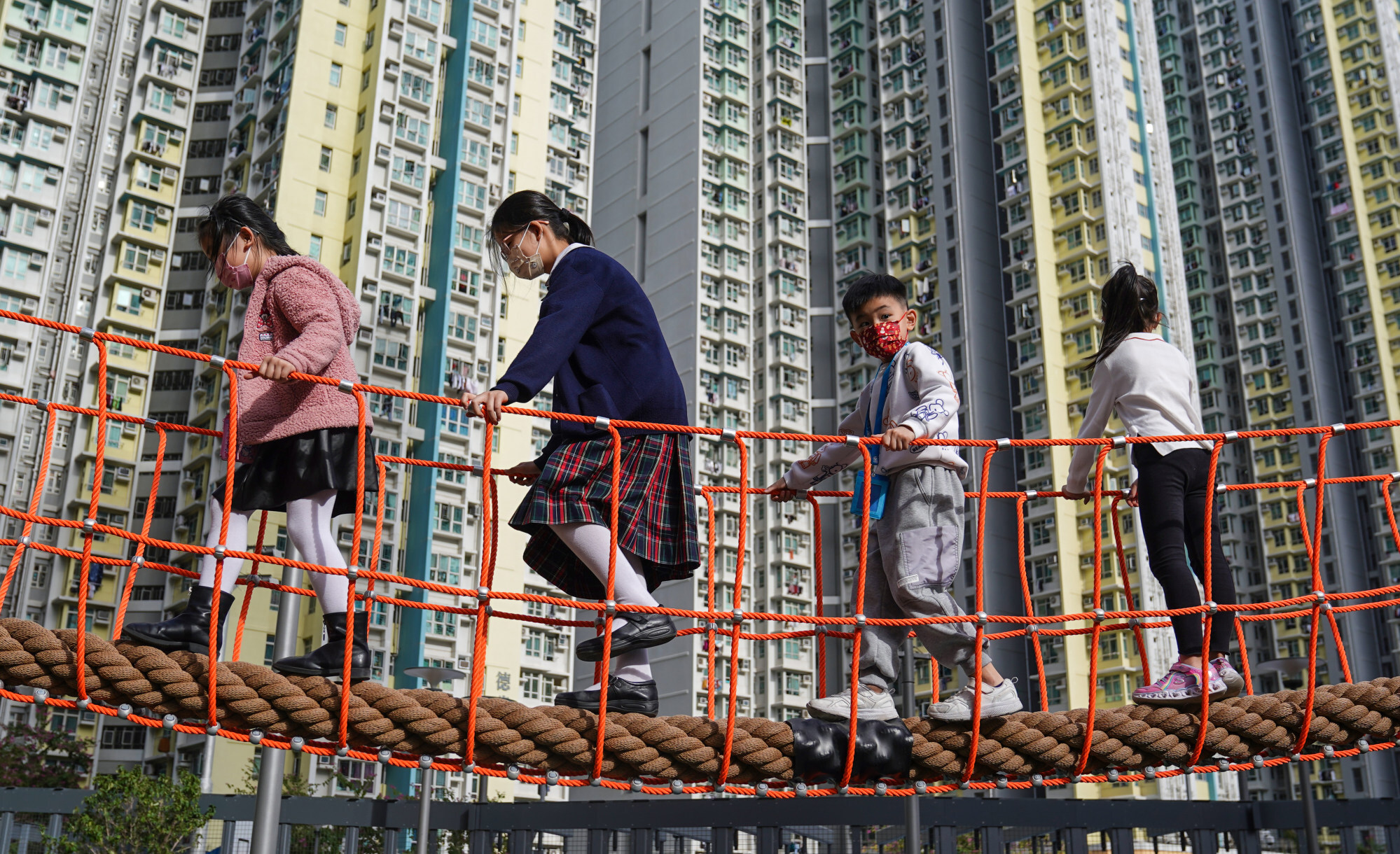
Hong Kong’s birth rate on track to hit 24-year low, with local schools fearing closures as enrolment declines
- The number of children born in the first 11 months of last year was down 12 per cent from the same period in 2020
- Educators are now calling for more government subsidies for kindergartens, warning there could be a wave of school closures otherwise
Hong Kong’s birth rate is on track to hit a 24-year low, with the number of babies born in the first 11 months of last year down 12 per cent from the same period in 2020.
The release of the figure on Monday coincided with the Education Bureau acknowledging in a meeting with a teachers’ group that all Hong Kong schools would find themselves affected by a steep decline in student population by 2025.
The falling birth rate has prompted educators to call for more government subsidies for kindergartens, warning there could be a wave of school closures otherwise.
According to the Census and Statistics Department, 35,464 babies were born in the first 11 months of last year, compared with 40,360 during the same period in 2020. Last year’s 11-month tally was the lowest seen since 1997.
Although the number of registered births in December is not available yet, it is not expected to reverse the downward trend.
Smaller classes, new pupils ‘can ensure Hong Kong schools’ survival’
Nancy Lam Chui-ling, a kindergarten principal and vice-chairwoman of the 37,000-member Federation of Education Workers, told the Post in a recent interview that she foresaw the declining birth rate posing an existential threat to some of the city’s 1,000 kindergartens, predicting a wave of school closures as the student population continued to shrink.
She called on the government to increase the amount of subsidies per student per year for kindergartens from the current level of HK$36,080 (US$4,630) to between HK$44,000 and HK$48,000.
“The incremental rise in the subsidy can ensure the operations of the kindergartens,” she said.
Based on projected birth rates, the number of students enrolling in K1 is expected to decrease from 53,168 to 41,955 between this September and next.

In addition to the falling birth rate, Lam said the lack of students crossing the border from mainland China for class during the pandemic was aggravating the enrolment problem, particularly for schools located in North district in the New Territories.
She said competition for students was keen, with some schools handing out freebies like bags and uniforms to entice parents.
Lam’s federation raised its concerns with Secretary for Education Kevin Yeung Yun-hung in a meeting on Monday.
Chu Kwok-keung, also a vice-chairman of the federation and a lawmaker in the education functional constituency, warned after the meeting that many teachers would face dismissal without more government subsidies.
Hong Kong parents seeing less competition for school places, point to emigration wave
But rather than agreeing to increase the funds, he said, the bureau instead told the federation it would simplify the procedure for kindergartens to apply for fee increases and put more resources into teachers’ professional training.
Looking ahead, the falling birth rate is also expected to have a knock-on effect on primary and secondary schools.
In a paper submitted to the Legislative Council last October, the Education Bureau projected the number of six-year-olds in the city to fall by 14.5 per cent in the coming years, from 58,500 in 2022 to 50,000 in 2029.
The number of 12-year-olds was expected to drop by roughly 5 per cent, from 63,100 to 60,100, over the same period.
New rule kicks in for Hong Kong schools to hold regular flag-raising ceremonies
The federation said the bureau also told them in the meeting that all schools in Hong Kong would be facing a substantial drop in student population by 2025.
For primary and secondary schools, Tang Fei, another vice-chairman of the federation, said the bureau had refused to relax its subsidy policy to ensure their survival, and that it would close those with enrolment problems in an orderly manner.
Wong Kwan-yu, president of the federation, added that the bureau believed there was little chance of the student population rebounding in the coming years, so adjusting the subsidy policy would not be a long-term solution.

